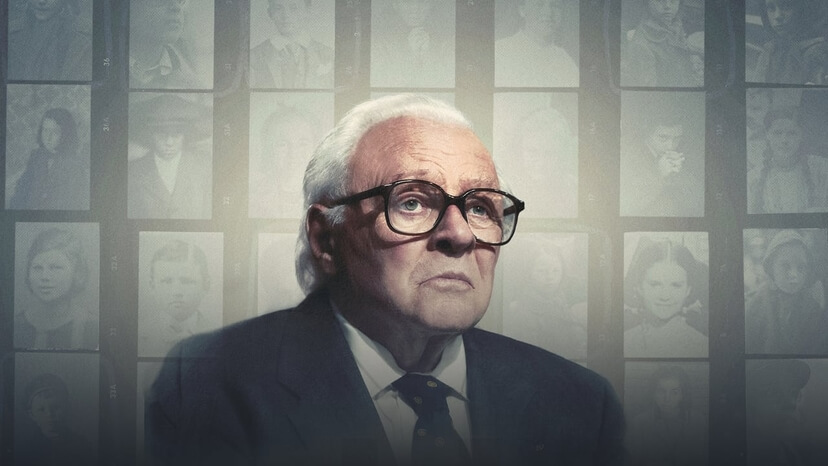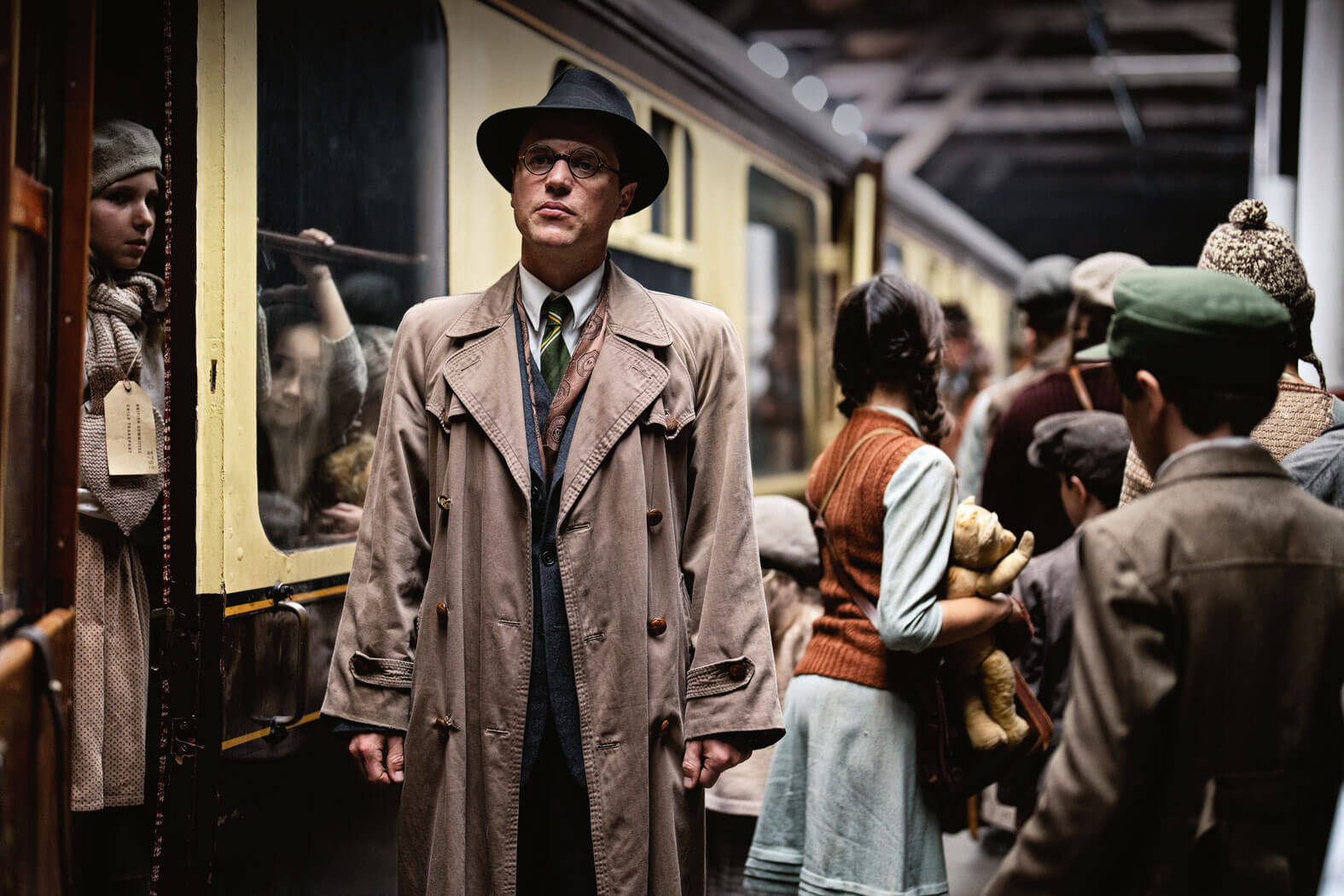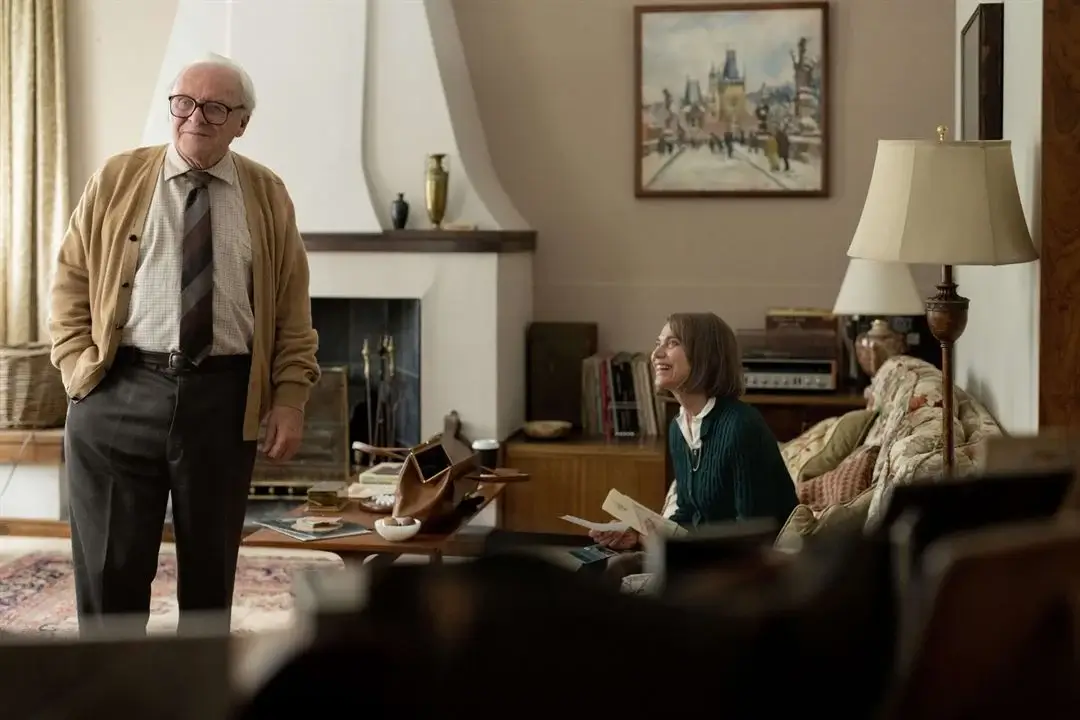ONE LIFE: A Moving Tale of a Forgotten Hero [REVIEW]

When I went to see the movie “One Life,” I expected something completely different from what I ultimately received. The trailer suggested another formulaic and predictable tribute to a little-known figure from the period just before World War II, which likely wouldn’t stand out aside from the promising cast. However, the final result exceeded both my expectations and those of the rest of the audience, who were often moved to tears by the substantial emotional impact. The latest war film featuring Anthony Hopkins in a leading role not only offers an educational and genuinely revealing perspective (as the British figure Nicholas Winton remains a historical curiosity, if he’s mentioned at all) but also evokes a full spectrum of strong emotions, profoundly moving the audience without resorting to drastic measures or exaggerated sentimentality, thus not exploiting the viewer’s sensitivity and endurance. The film draws inspiration from true classics of its genre.
A Man for Special Tasks
Nicholas Winton (Johnny Flynn/Anthony Hopkins) is a dedicated altruist, a Briton who, upon arriving in Czechoslovakia in 1939, couldn’t remain indifferent to the suffering he encountered on the streets of Prague. The situation he found was worse than any expectations – thousands of families with children living in tragic conditions, fleeing the inevitable Nazi invasion, facing widespread hunger, poverty, and lack of sanitary facilities. Known for his social activism, Nicky joins the local refugee office and mobilizes all available contacts to organize mass transportation of the youngest refugees to foster families in Britain. Time is of the essence here – Hitler’s entry into Prague is only a matter of months away, as is the occupation of other territories, including Poland. In a short period, Nicky’s group manages to find shelter for 669 children who, upon arriving in England, gain new lives and avoid being sent to extermination camps.

A Man of Special Tasks
Nicholas Winton (Johnny Flynn/Anthony Hopkins) is a devoted altruist, a Brit who, upon arriving in Czechoslovakia in 1939, couldn’t remain indifferent to the suffering he encountered on the streets of Prague. The situation he found was worse than expected – thousands of families with children living in tragic conditions, fleeing the inevitable Nazi invasion, with widespread hunger, poverty, and lack of sanitation. Known for his social activism, Nicky joins the local refugee office and mobilizes all available contacts to organize the mass transport of the youngest refugees to foster families in Britain. Time is crucial – Hitler’s entry into Prague is only months away, as is the occupation of other territories, including Poland. In a short period, Nicky’s group manages to find shelter for 669 children who, upon arriving in England, gain new lives and avoid being sent to extermination camps.
An Album with a Mystery
The narrative intertwines the period preceding the outbreak of World War II with the 1980s, when Nicky is retired. Despite his old age, the impending birth of his grandchild, and his wife’s urgent pleas, he continues to help those in need and actively participates in various charitable activities. An album with photos of the adopted refugees, which remembers his activities from years past, is hidden in a leather case that, after some persuasion from a friend, he decides to donate for educational purposes. This leads to the immediate publicizing of his touching story – suddenly, the man becomes a hero on a popular TV show, through which he reunites with the people he saved decades ago. The emotions he experiences facing the children he gave a second chance at life are almost unimaginable, but despite the passage of time, the greatest burden for Nicky remains the names he couldn’t cross off the list – the children who vanished without a trace.
“One Life”. A Sentimental Masterpiece
Saving one life saves the entire world. This recurring phrase throughout the movie is the guiding principle for our protagonists. In “One Life,” we don’t witness acts that initially seem heroic – saving hundreds of starving children often involves dealing with bureaucrats, making countless phone calls, and handling endless paperwork. Director James Hawes doesn’t bombard us with pathos, brutality, images of dead bodies, or bloody battlefields. Hitler is mentioned only a few times, with the sense that our heroes are about to face the realities of the war. In “One Life,” the focus is entirely on the people – the quiet heroes and their forgotten resilience over the decades. Nicholas Winton, portrayed by both actors, is a character who, in today’s world, seems almost mythical, an archetype of an impeccable altruist and activist we desperately try to emulate. Thus, the film’s impact is more educational than artistic. It’s a biographical war drama that doesn’t stand out in terms of screenplay or style but aims to evoke specific emotions and fill us with hope for a better future. Sentimentality emerges from the screen at every turn – especially during the third act, when the elderly Nicholas reunites with the children he saved. Although lacking in spectacle, spectacular dialogues, and grand epicness – it is often the silence, small gestures, and the emotion on Anthony Hopkins’ face that make “One Life” a sentimental masterpiece.

“One Life” is nevertheless an incomplete story. The character of Nicholas’ mother, played by Helena Bonham Carter, and his Prague friends, whose stories were abruptly cut off to focus more on the 1980s, would have benefited from more development. The portrayals of the saved and those who couldn’t be saved seem too quickly drawn and thus lose significance. The entire film is merely a fraction of a story that deserves proper recognition. Given the relatively late “discovery” of Winton’s activities, it’s not surprising that the story is presented with a somewhat Hollywood flair, depicting World War II more as a cautionary tale than revealing its actual details. The culmination of the most challenging emotions to endure is the ending, where we recreate the broadcast of the TV show “That’s Life,” through which the world learned about Nicky Winton’s story. This moment reveals the true purpose of the production – it is a celebration of humanity in its purest form, somewhat sugar-coated and appropriately showy, yet sincere and genuinely beautiful.
“One Life” is a poignant, restrained tribute to a forgotten hero that uses Nazism as a clever allusion to contemporary migration crises. Anthony Hopkins once again brings tears to the audience’s eyes, a skill he showcased brilliantly in “The Father,” which ultimately earned him another Oscar. I wouldn’t be surprised if his role as Nicholas Winton also garnered him several acting nominations. Although James Hawes has a long way to go to reach the level of someone like Roberto Benigni in “Life is Beautiful,” he manages to evoke sounds of emotion and the opening of tissue packets throughout the cinema, which happens increasingly rarely today.

